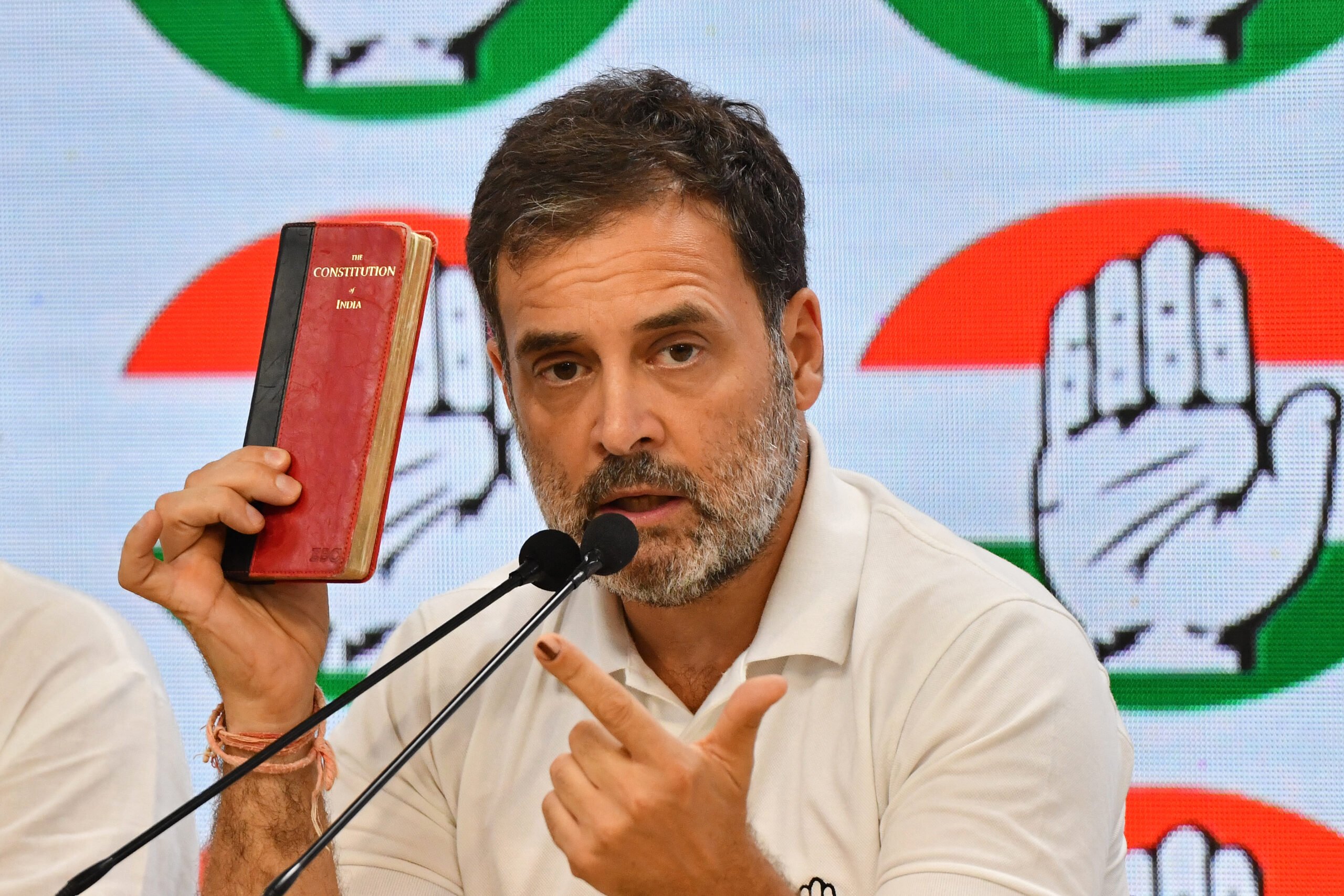- Thursday, April 24, 2025

By: Vivek Mishra
Indian opposition leader Rahul Gandhi, mocked by Narendra Modi and his supporters for a long almost a decade now, marked a stunning comeback on Tuesday, even though the ruling Bharatiya Janata Party-led alliance looks set to form the government again.
Modi looked set on Tuesday to retain power at the head of a ruling coalition, but his party lost its outright majority for the first time in a decade.
Rahul Gandhi has emerged at the centre of an alliance that made deep inroads into ruling party strongholds.
Gandhi embarked on two cross-country marches against what he called Modi’s politics of hate and fear, giving a jolt of enthusiasm to his Congress party and rehabilitating his own image.
Reduced by a Modi landslide to just 52 seats in the 543-member lower house of parliament in 2019, Congress looks well set to nearly double that tally this year, according to the vote count from the general election.
Though it might have to sit another term out of power, Congress will have the loudest voice in a much stronger opposition, with Gandhi at its centre.
As the opposition’s most prominent face, Gandhi has been a target of attacks from Modi and other BJP leaders, who often call him “the prince”.
Gandhi’s father, grandmother and great-grandfather have all been prime ministers.
During the campaign, Gandhi, with close-cropped black hair and a scruffy salt-and-pepper stubble, criss-crossed the country as his party’s main face, even though Congress is led by family loyalist Mallikarjun Kharge.
“I think Rahul Gandhi will get credit, not just for mobilisation, for his marches, but also for continuously clarifying the Congress’s ideological pitch against the BJP,” said Rahul Verma, political analyst at the Centre for Policy Research think tank in New Delhi.
“If there was a moment when Gandhi really emerged, it is now,” he said.
At a news conference on Tuesday, Gandhi pulled out a red-jacketed, pocket-sized version of the country’s constitution that he has referred to continuously during the campaign, and said his alliance’s performance was the “first step” in preventing Modi from attempting to change it.
Changing the constitution requires a two-thirds in parliament.